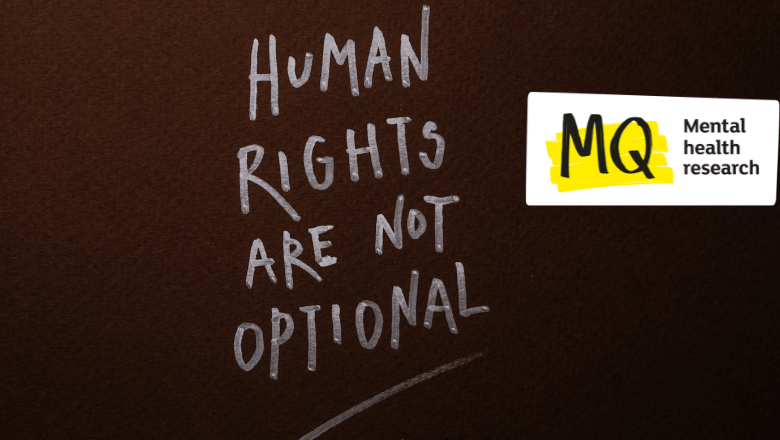Protecting Mental Health As A Human Right

World Mental Health Day falls on 10 October every year. This year the theme is ‘Mental Health is a Human Right’. In a previous article, we answered the questions like what is a human right and why is mental health one? Now we look at how our mental health is protected by human rights.
How does the Human Rights Act protect people with mental health conditions?
Someone with mental health conditions is protected by the act because staff and service providers must, according to the law, treat that person with dignity and respect. Mental health services, social services and emergency services staff must respect you, even if you’re detained under the Mental Health Act. This is being questioned in the potential reform of the Mental health Act in the UK.
While there are 16 rights or articles in the Human Rights Act, some apply to those with mental health conditions more frequently than others.
The Right To Life
There are laws to protect every one of us, and to protect you if your life is at risk. This also means investigations must happen if someone dies in suspicious circumstances.
Hospitals treating people with mental illness must therefore protect their life. If a person is at risk of taking their own life and are a patient in hospital, the staff there must ensure you don’t have any way to do this.
Everyone has the right to life, but those with severe mental illness die earlier than others. You can read about how MQ’s Gone Too Soon project is helping in this personal story about being involved in the research.
The Right to Not Be Tortured
This part of the Human Rights Act means no one can be tortured or treated in an inhuman or degrading manner. To translate this, no one can be treated in a way that causes physical or mental suffering or psychological pain such as neglect or abuse, inhuman conditions or police violence.
This could be extended. For example, if a government fails to make access to controlled medicines the relieve suffering available, it could be considered ‘inhuman treatment’.
This right is particularly relevant to mental illness as, if you’re treated in a dehumanising way when detained under the mental health, it could worsen symptoms. There is also some grey area when it comes to forceable treatment of those who are inpatients or detained. Force cannot be used unless for a patient’s safety.
It’s worth noting, not being in the strongest position, already dehumanised or degraded by low self-esteem or mental anguish experienced because of the conditions that led to their illnesses developing or worsening might mean many with mental health conditions may not resist force or might not know their rights or feel the ability to exercise them.
The Right To Liberty and Security
We all have the right to liberty and to make decisions for ourselves. This right to free movement or ‘liberty’ can be taken away if someone is arrested, imprisoned, or detained under the mental health act.
Being sectioned under the mental health act means your right to liberty and independence is restricted for your own or for others safety. This right is important as a lack of freedom and lack of security, a feeling of forced compliance or of lack of safety, adversely affects mental health.
The Right to a Fair Trial
Every person deserves a fair hearing with independent, impartial judgements. When it comes to mental health this could apply to tribunals or case worker hearings which are like tribunals but more informal.
The Right to a Private and Family Life
Privacy can include respect for sexuality, the right to own your decision who sees and encounters your personal physical self, your confidentiality of information, the right to explore your identity and interpersonal relationships. All of this can be very supportive to good mental health, research indicates, and the repression of these can affect our mental health adversely. Repressing relationships can have interesting effects on our well-being as adults, studies have shown. And unstable family structure, rather than the specifics of the structure itself, can have negative effects on children’s mental health, research suggests.
The Right To Not Be Discriminated Against
In the broadest sense, this means everyone’s rights are protected equally, free from stigma and discrimination. This is relevant to work MQ is doing to ensure that discrimination and inequalities in mental health research continue to be tackled. You can read more about how MQ is tackling inequalities in our article.
If you’re concerned about your rights, you can get advice from the Citizens Advice Bureau.
Help MQ fight for mental health as a human right by supporting us now.
Source link
#Protecting #Mental #Health #Human

